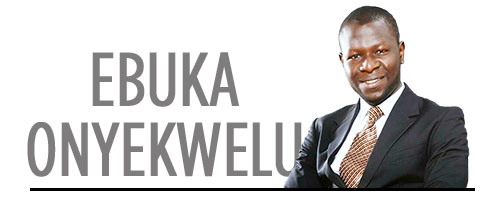“On one hand, they tend to support a total isolation of the government in power, and anyone sighted with the President, they counted as their enemy. Tony Elumelu of the Heirs Group was an object of social media cancellation when he met with Bola Tinubu as president-elect.”
Since around 2020 when the End SARS protest broke out, the level of consciousness of Nigerians has not remained the same. A significant Nigerian youth population has conveniently converted the End SARS protest energy into some form of political value. This can be seen in the 2023 elections where thousands of first-time voters and several other young people, led the charge from social media.

Looking at all that has happened so far since the build-up to the 2023 election, the new entrants into Nigeria’s political ring might have conceived of politics to be the same as activism. At best, they might have conceived of politics as a zero-sum game where it is either they meet their target or there is nothing else worth their while. Yet, politics mainly thrives on compromise and more compromise. Politicians and those interested in state power are always open to negotiation and concession and never bent on having it their own way. With this in mind, apparently, the next generation of political players might find it hard to deal with the nature of politics and this is a fundamental challenge.
The post-2023 general election has shown that while many Nigerians have a historic level of interest in the governance of their country, they are still largely incongruent about how political power can be smoothly acquired within context. Out of a feeling of frustration over the election result which failed to turn out as some of them expected, there is an increased resentment against the system, reinforced by all manner of fake news, conjectures, and open suggestion to end democracy in Nigeria without any thought to its consequences. Most of them attack and literally delegitimize government institutions, yet they still rely on the same institutions for good governance delivery and justice. On one hand, they tend to support a total isolation of the government in power, and anyone sighted with the President, they counted as their enemy. Tony Elumelu of the Heirs Group was an object of social media cancellation when he met with Bola Tinubu as president-elect. For people interested in political power, how does one begin to isolate or cancel people they ought to be courting and engaging for their own purpose? Then, on the other hand, they express worry that the government needs certain people to help straighten its policies. Surprisingly, when President Tinubu nominated Tijani Bosun as a minister, the same people immediately turned against him and accused him of pursuing his daily bread at the cost of building a nation. This is despite the fact that Tijani, a high-flying tech innovator, had fully opposed Tinubu during the electioneering campaigns. In the past, he had also called out the Nigerian senate and government officials with derogatory language. Notwithstanding, he was roundly abused and accused of selling out, by none, but the same people who had accused President Tinubu of not appointing credible young people but instead, merely recycling politicians.
A look at the depths of these developments, the worry is if many young Nigerians are ready for the strategic, tough, and laborious work of passing the political test first, before governance. Except, to them, Nigeria has only one assured route through which it can get better. Perhaps, it is the grand design of nature that Nigeria can work only in a particular way; an assumption both unrealistic and untrue in entirety. Would Tijani for instance, not make more than a million impacts as a minister thereby contributing towards the desired expectations of many, than he would have made as a concerned Nigerian ‘abusing’ government institutions online, something he profusely apologized for, at the Senate? And so, it is obvious that the mistake of the End SARS protest is being repeated and sadly so. Worst still, considering that this is politics where the winner has little or no use to placate the opposition, this is because, after the election, the attention moves from politics to governance.
During End SARS protest, the organizers lost so many opportunities to get into mainstream public management and be involved. They lost opportunities to do it themselves when it was offered by governors. Instead, they kept insisting on having all their demands met on their own terms while rebuffing all entreaties from various state governments. Forgetting that progress is incremental and never absolute; progress is a process and never a destination. Therefore, it is absolutely preposterous for anyone or any group to insist on having their own way where there is an opportunity for compromise and mutual understanding, which will only open up more opportunities for growth, offering at least hope of possible attainment of the desired end.
And so, without a pragmatic and incremental approach to Nigeria’s progress by the teeming political enthusiasts online and the many, especially young people, who are now interested in the governance of their country, sad as it is, they would be unable to make any significant impact in the governance processes of their country.
- World Immunization Week: Medical Practitioners, Others, Speak on the Benefits of Immunization - April 25, 2024
- Insecurity in Anambra: “We must focus our gaze within” – Uzu Okagbue - April 25, 2024
- Anambra Schoolgirls Win National ICT Competition - April 25, 2024

